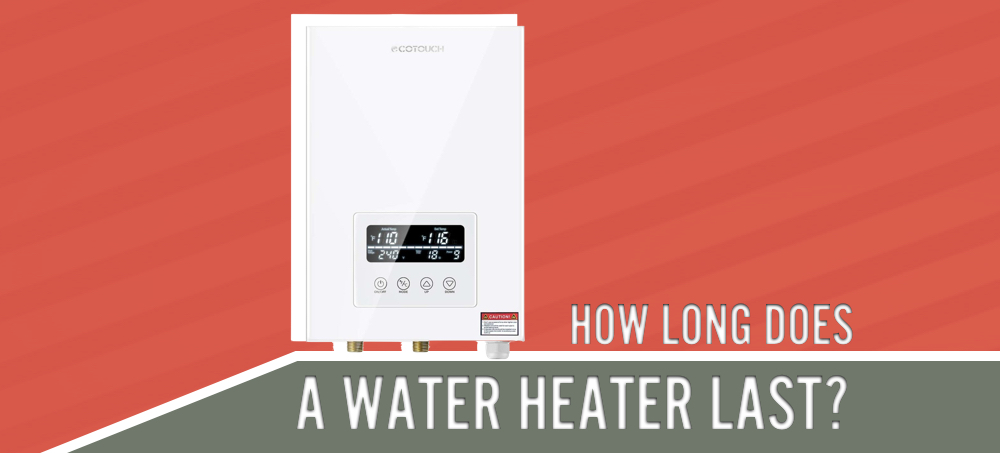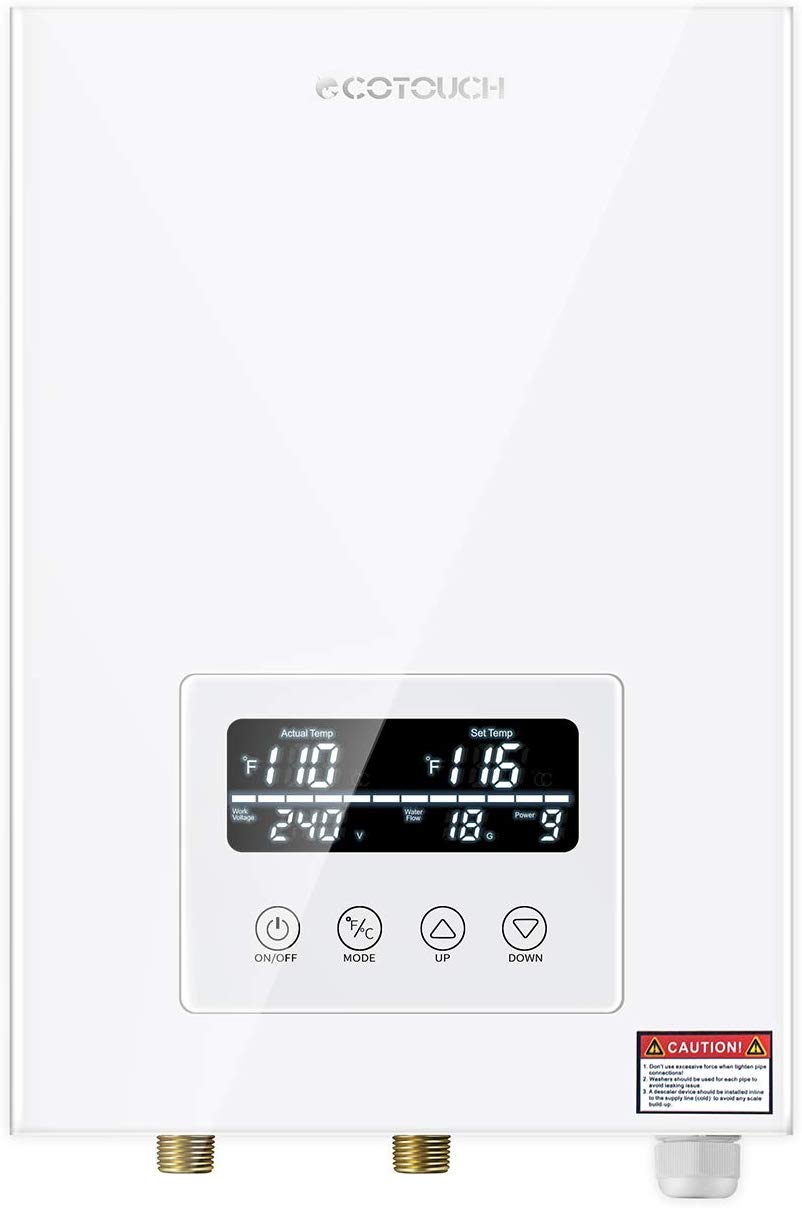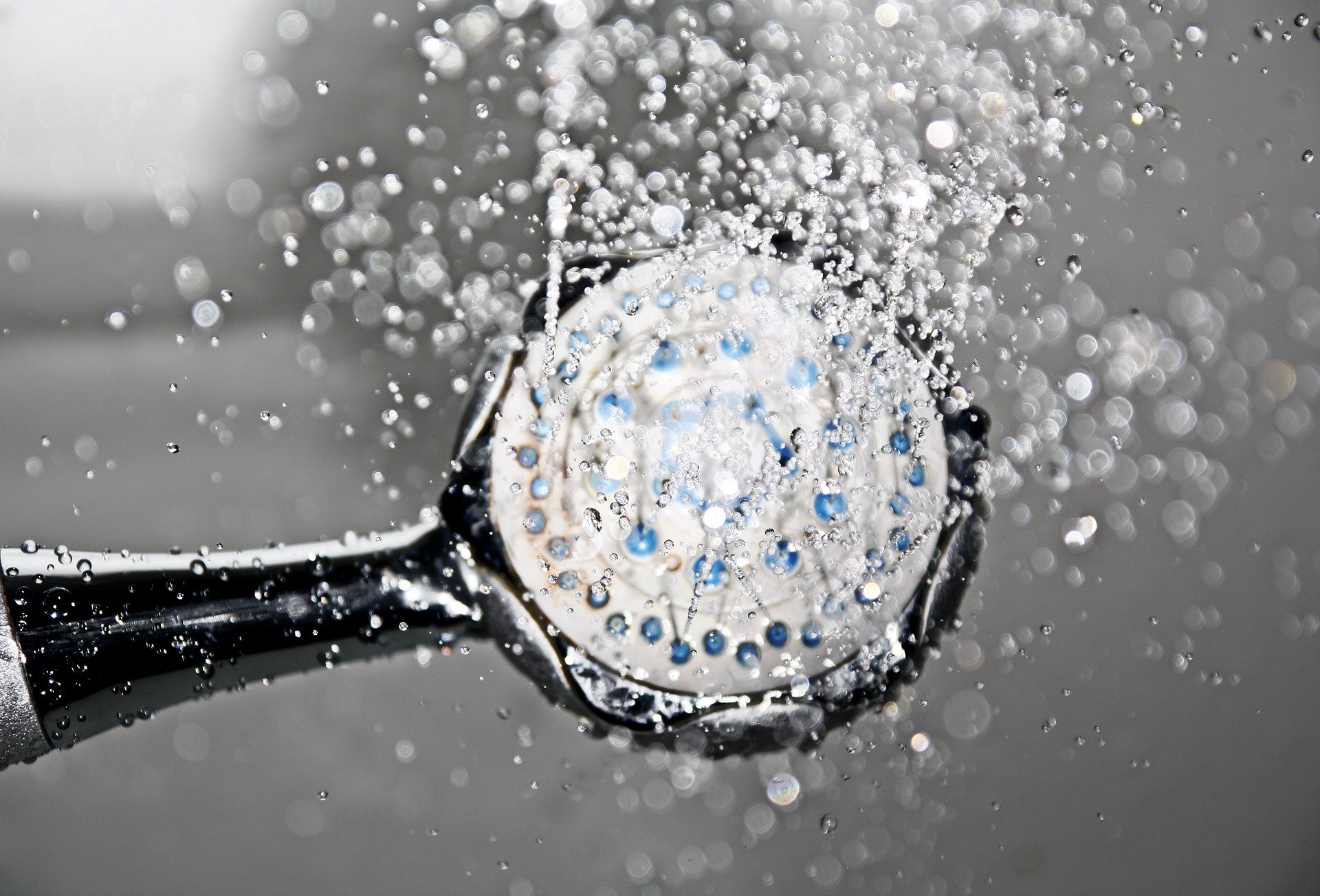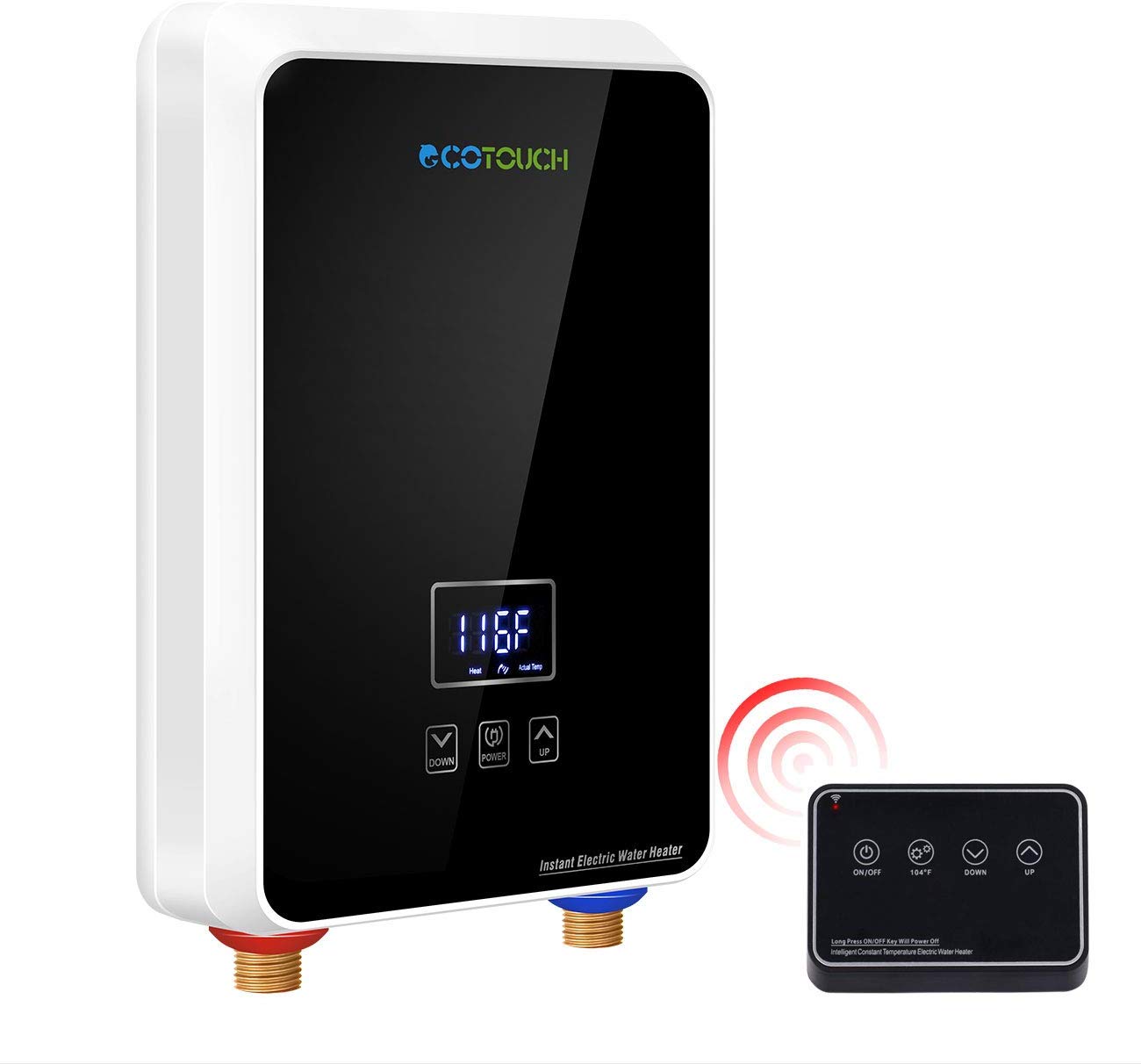How Long Does A Water Heater Last?
Last Updated on December 11, 2021

Is there anything worse than being assaulted by a cold shower first thing in the morning? It’s an uncomfortable way to start the day, but it can lead to an important question: how old is your water heater? Knowing the answer to this question, and knowing how long a water heater typically lasts, can reduce the likelihood of cold morning showers.
An average water heater will last anywhere from eight to 12 years. The four-year difference has a lot to do with maintenance. Water heaters are largely taken for granted by the average homeowner until they are faced with repairs or floods.
If you are not familiar with how a hot water heater works, it’s a fairly simple process. Basically, a water heater is a large tank with a heating mechanism at the bottom – either gas or electric. The heater is attached to your water input pipe that fills the tank with cold water. As the water is heated at the bottom, the hot water rises and is pushed through your plumbing system when the hot water faucet is turned on.
Easy, right? Well, like any other machine, it won’t last forever. With that thought in mind, we have shared some tips on how to extend the lifespan of your system. We will also let you in on the reasons why your water heater becomes damaged and fails, signs it needs repair, and the benefits of replacing your unit.

Electric Waterheater, Image Credit: Electric ECOTOUCH, Amazon
What Causes A Water Heater To Malfunction?
Even though the lifespan of a water heater can last over a decade, there are many things that can contribute to its early demise. Sadly, besides the inevitable breakdown of parts over time, homeowners are not always aware of what is causing the damage. They, therefore, are not prepared to take steps to prevent it.
To give you some more insight into what will shorten the amount of time you have with your water heater, here are the five most common causes of water heater damage.
- Pressure: When water is heated it naturally expands causing pressure inside the water heater tank. The tank uses a temperature and pressure relief valve (T&P valve) to release the pressure. The hotter you set your tank’s thermostat, the more pressure will build. Anything over 135-degrees (80psi) can create leaks or even combustion.
- Rust: We all know that over time, water eats away at metal. Rust inside a hot water heater will cause the machine to have holes, cracks, and unclean water. To stop it from happening, anode rods are used as a “sacrificial” alternative snack for the water. If the rods are not replaced periodically, rust will form and cause damage.
- Poor Air Quality: This one may sound odd, but poor air quality can erode the inside of the tank. This happens because a water heater needs to take air in to work. If the air is polluted or corrosive from harmful vapors, it will affect the interior of the tank.
- Sediment: Sediment is created by an excess of minerals in the water. The minerals are denser than the water, so when they enter the heater tank they float to the bottom causing sediment build-up. The layer of build-up is going to create a barrier between the water and the heat source, making the system work that much harder to create hot water. Minerals and sediment will also cause hard water—which is a problem on its own we will discuss later.
- Overburdened: Hot water heaters come in a variety of sizes. When a homeowner chooses a model that is inadequate for the size of the home, the system will again have to work too hard to fulfill its purpose.
The overall progression of time will eventually cause the unit to malfunction, but these issues will also play a role in shortening the lifespan of the unit.
Signs and Symptoms That Your Water Heater Needs Repair
All of the issues above can cause your water heater to malfunction or even fail. While there are some obvious signs that your system needs repair, some of them can go under the radar.
Regardless, it’s important to nip the problem in the bud before it becomes an emergency repair. To make matters easier and help save your wallet from overtime repair costs, take a look at the situations below:

Cold Showers? Image Credit: Shower Head Water, Pixabay
You’re Taking Cold Showers
Okay, this is an obvious one but should still be mentioned. A lack of hot water can be due to several issues, but the most common two are: (1) the pilot light is out; or (2) the circuit breaker was tripped. Check both, and if both are fine, call a technician.
The Water Isn’t Getting Hot
Another common warning signal is when the water only gets lukewarm. Before calling for help, check to make sure the temperature of the system is set correctly between 120 and 135 degrees. If the temp is fine, it could be the heating unit itself, and you will need to make that call.
You’ve Spotted Leaks
The last thing you want to see is a leak coming from your water heater. It could mean there is rust, too much pressure, an issue with the T&P valve, or that its lifespan is coming to an end. Either way, you will want to have repairs done quickly. You will be surprised how quickly small leaks can turn into a flood.
There Are Odd Sounds
For the most part, a water heater does not make too much sound. Any sound it does make will usually fade into the background, as well. That being said, any odd noises like pops or cracks are not good. It can be due to mineral build-up or a problem inside the tank.
The Water Appearance is Off
Rust-colored water is an alert that your system is in trouble. Also, cloudy water, water that tastes metallic or smells funny, are all symptoms of sediment build-up; otherwise known as hard water. This is what causes all the nasty white stains on your fixtures. It creates streaks on your glassware and makes your skin itchy. Calling in a professional will help get rid of it, though.
There are other warning signs you can keep your eyes open for, but there are the basics. Of course, anything that seems off should be checked out by someone with experience. On another note, there are ways you can help prevent these problems; which brings us to the next topic.

Tankless Water Heater Image Credit: ECOTOUCH Water Heater, Amazon
Extend the Life of Your Water Heater
The difference between a water heater failing at eight years and it failing at 12 years or longer is maintenance. It goes without saying that the better you take care of your machines and appliances, the longer they will last. On the other hand, water heater maintenance is not everyone’s idea of a good time, so we will keep it simple yet effective.
A pair of biannual checks will extend the life of your system and reduce the number of repairs you could face. First, check the unit itself. Look for any leaking water, check to make sure the anode rods are not completely gone, and check to make sure the T&P valve is working correctly.
Second, check the water. Empty a couple of gallons into a bucket so you can examine it for color, odor, and any debris. If there is a new mineral build-up or rust, the issue will appear in the tank prior to you being able to see it in your sink. Doing so can give you the time to fix it way before it becomes a big problem.
If you wish to aid your water heater further, you can do a few other things. For example, you can add a water softener that changes the chemical makeup of the water from hard to soft, eliminating sediment build-up. You can also add an expansion tank which will reduce tank pressure.
Finally, don’t forget the most basic and easy way to maintain your water heater. Pay someone. Experienced technicians are available to inspect and maintain your system as often as needed.
Replacing Your Water Heater
Despite your best efforts, there is going to come a time when your water heater needs to be replaced. Though doing so can be fairly expensive and inconvenient, especially if you are left without hot water for an extended period of time.
Opting for a new system can lower your energy bills since it will be more energy-efficient to run. New models are more eco-friendly, you will have cleaner water and fewer repairs. What’s more, modern water heaters have smart features like vacation mode, or you can go for a tankless system where you can enjoy continuous hot water.
Regardless of all the benefits, taking the leap to purchase a new unit can be tough if your system has not already failed. Many homeowners roll the dice with their systems, hoping this last repair will last a few years. More often than not, they are wrong.
If you are on the fence, here are a few things to consider. First, look at the overall picture. If you have hard water, frequent breakdowns (especially to the motor and heating mechanism), or leaks, you are better off with a new system.
If you prefer numbers, consider this; If your water heater is three-quarters of the way through its life span, and the cost to repair is more or equal to half the cost of a new system, the more cost-efficient option is to go with replacement. Also important to note, if you have had several small repairs in the last year that add up to half the cost of a new unit, replace it.
If you are unsure of the age of the unit, try checking the manufacturer’s tag. The date of manufacture is usually listed on the unit. If not, look for the serial number. The first letter corresponds to the month and the next two numbers refer to the year of make. For example, if it says C123696521 “C” corresponds with March, while “12” refers to the year 2012, making the date of manufacture March 2012. The letters run simultaneously with the months so “A” is for January, “B” is for February and so forth.
Conclusion
All said and done, a water heater is more than capable of lasting to its full life expectancy of twelve years with good maintenance practices. These are chores that you can easily accomplish alone or with the help of a trusted plumber. Either way, your likelihood of cold showers will be greatly reduced.
Come to that eight-year mark, however, you should start to keep your eyes peeled for problems that could surface. Waiting to replace your system when it’s on its way out can have a big impact on your hot water, your wallet, and your patience.
We hope that the information above has given you some food for thought in regards to your hot water heater. Knowing what to expect is half the battle, and knowing when to jump ship is essential.
Written By Shannon MacDevine
Featured image credit: ri, Pixabay
